
Seeing Change
Feeling gratitude in the face of crisis
Based in Rome, she is supporting the World Food Programme’s (WFP) efforts in Sudan, Chad, Gaza, and DRC, she says. “I have deployed members of my rapid response team to those locations and I attend bi-weekly operations meetings to discuss what is needed.” The WFP won a Nobel Peace Prize in 2020. Its relief efforts in 120 nations reached 160 million people in 2022. Oman Lawi’s humanitarian work began at Swarthmore, where she had a special major in anthropology, sociology, and religion. “I called it peace studies,” she recalls. While a sophomore, the amount of food wasted at the former dining hall troubled her. Soon she began taking plastic tubs full of leftovers to a Chester homeless shelter in her Chevy Tracker. Later, she created a feeding program on 69th Street in Philadelphia.
Today “it feels like the world is on fire,” says Oman Lawi, pointing to a deadly earthquake in Morocco, flooding in Libya, and the wars in Yemen and the Middle East. “But at the same time, I feel more people are beginning to understand, care, and connect the dots with this beautiful planet we live on.” Describing herself as “fundamentally an optimist,” she says: “You can’t compare crises, and you can’t compare suffering, because you go crazy if you do. Questions about good guys and bad guys go out the window. If I’m working to save a malnourished kid in Mali, it’s no different than if that kid is in the Republic of South Sudan.”
Despite her influential role, she believes the most important thing she can do is be true to herself. “Living a life based on my own ethics — that tiny little grain of sand — is truly, fundamentally, at the end of the day my contribution, and for that, I feel this unbelievable gratitude.” —GEORGE SPENCER
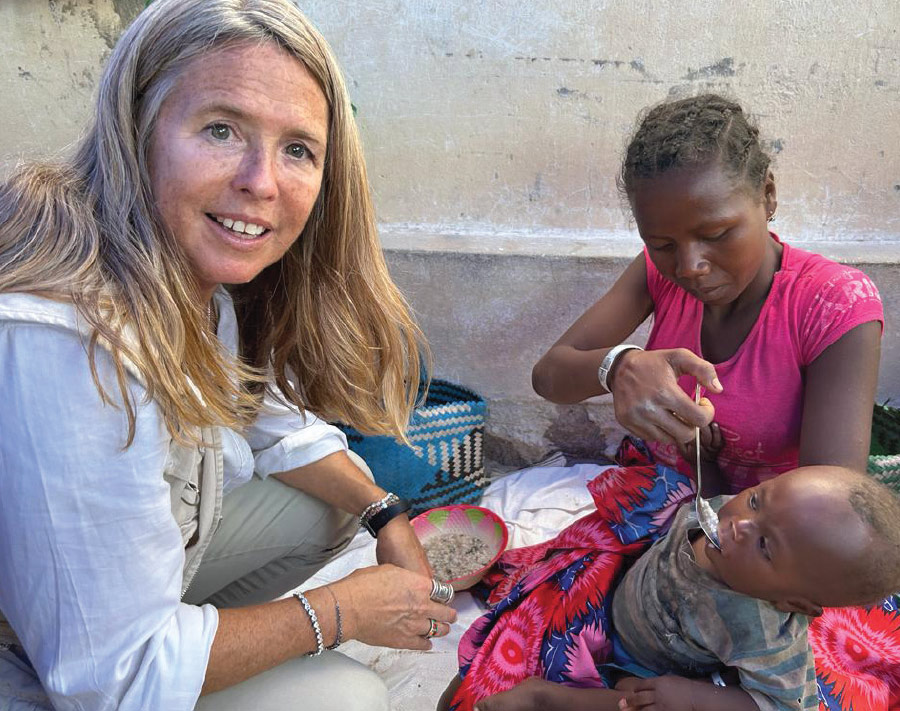
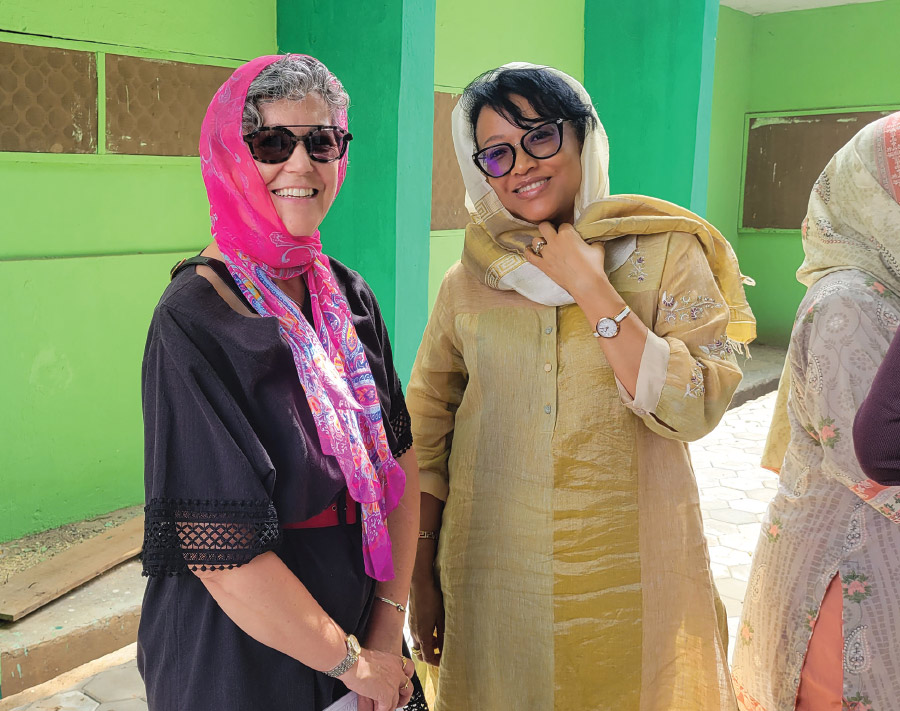
Building Partnerships in Women’s Health
“All the core elements of the work I was doing and the mission I’ve dedicated my life to are not just threatened, but are under explicit attack,” says Starrs. Anti-abortion groups, many funded from the U.S. according to her, have been “very effective” in other nations. Working at the Gates Foundation was “intense.” She left, in part, because it does not fund work related to an issue of vital importance to her — access to abortion services. Around the world, abortion rights are under “serious threat,” she says. Yet she is hopeful. “We are seeing greater activism and engagement from communities, particularly women and girls. The youth movement is surging globally with young people asserting their rights,” says Starrs, who now serves on the board of the Partnership for Maternal, Newborn and Child Health, which partners with U.N. agencies, donors, and nongovernmental organizations. Looking back, she’s most proud of her work as president of the Guttmacher Institute, a New York City-based nongovernmental organization, whose 2018 report on reproductive health and rights is regarded by donors and advocacy groups as the gold standard for evaluating progress in those fields.
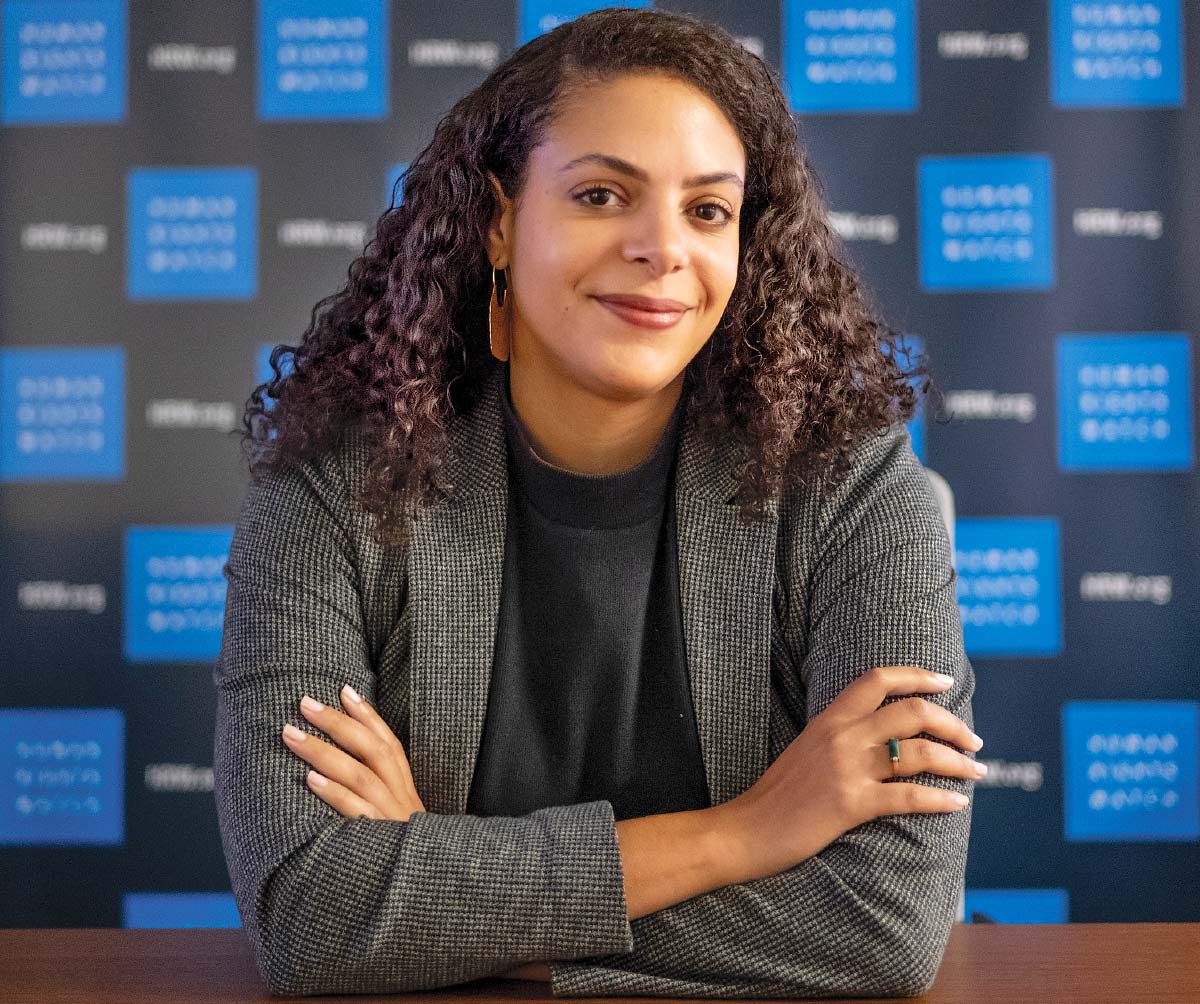
Seeking Change in Criminal Justice
After NYU, she took a job as a staff attorney at the ACLU’s Capital Punishment Project. Her mission was persuading courts to spare her clients’ lives. The job took her all over the South. At every turn, she came face to face with the towering structural barriers her clients had faced. Many came from overpoliced neighborhoods or had been through the foster care system. Others had untreated mental health conditions. “Their stories,” she says, “always started a long time before the capital charge.” After five years of that work, during which she was named one of Forbes’ 30 Under 30 in Law and Policy, Ensign started to want to make a greater impact at a structural level. “I wanted to think about different inroads to change,” she says.
In 2022, she moved to Human Rights Watch, a large, Nobel Peace Prize-winning international organization, where she is now a senior advocate and researcher on the U.S. program. She spends her days “trying to move the needle,” towards greater protection of human rights in America through research, public education, and advocacy, often in collaboration with grassroots groups. Still focused on the criminal justice system, she now sets her sights on the root causes of violence, discrimination, and police brutality. She advocates for structural change, including investments in education and in infrastructure. “For what communities need to thrive,” she says, “and be safe.” —TOMAS WEBER
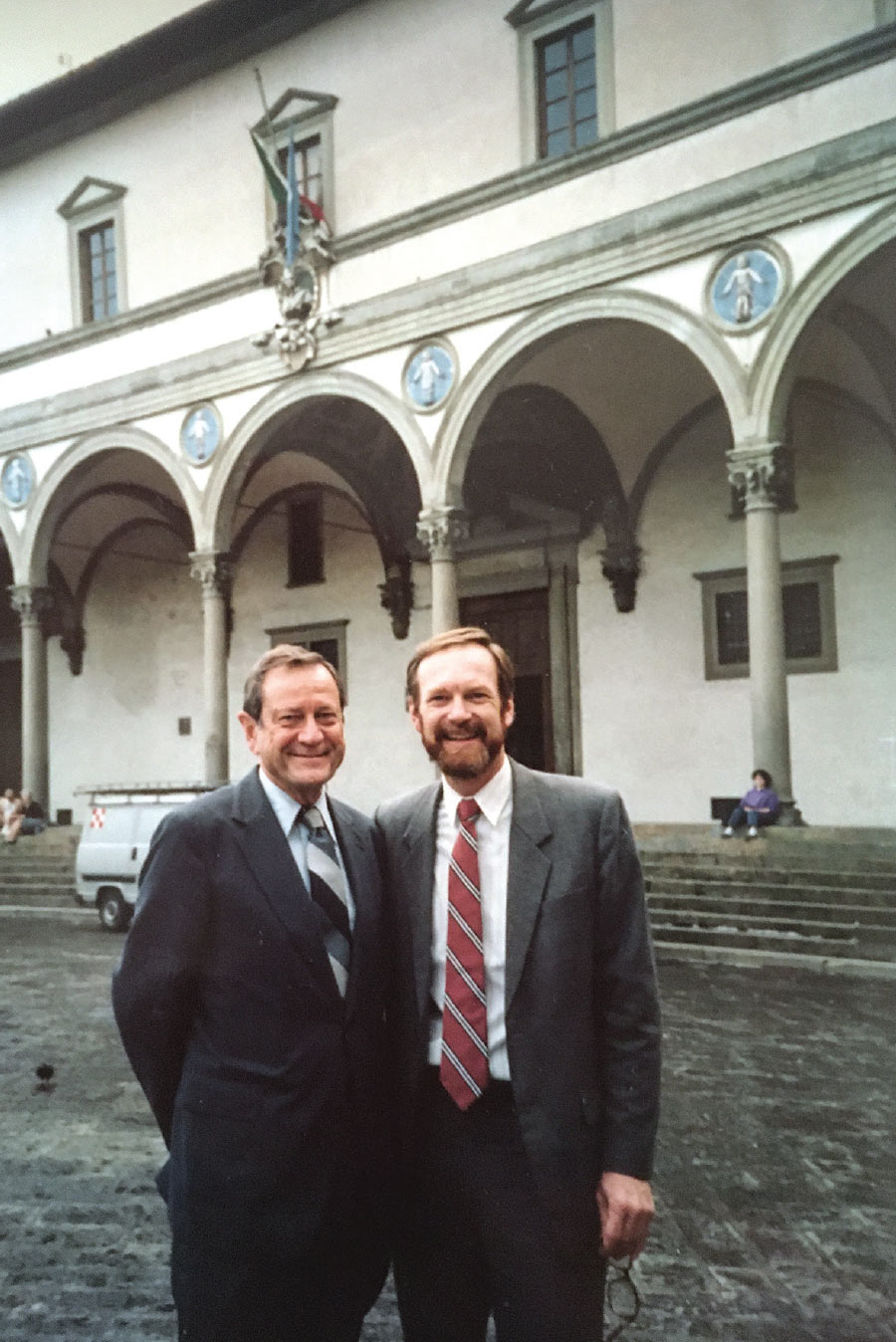
Shining the Spotlight on Children’s Rights
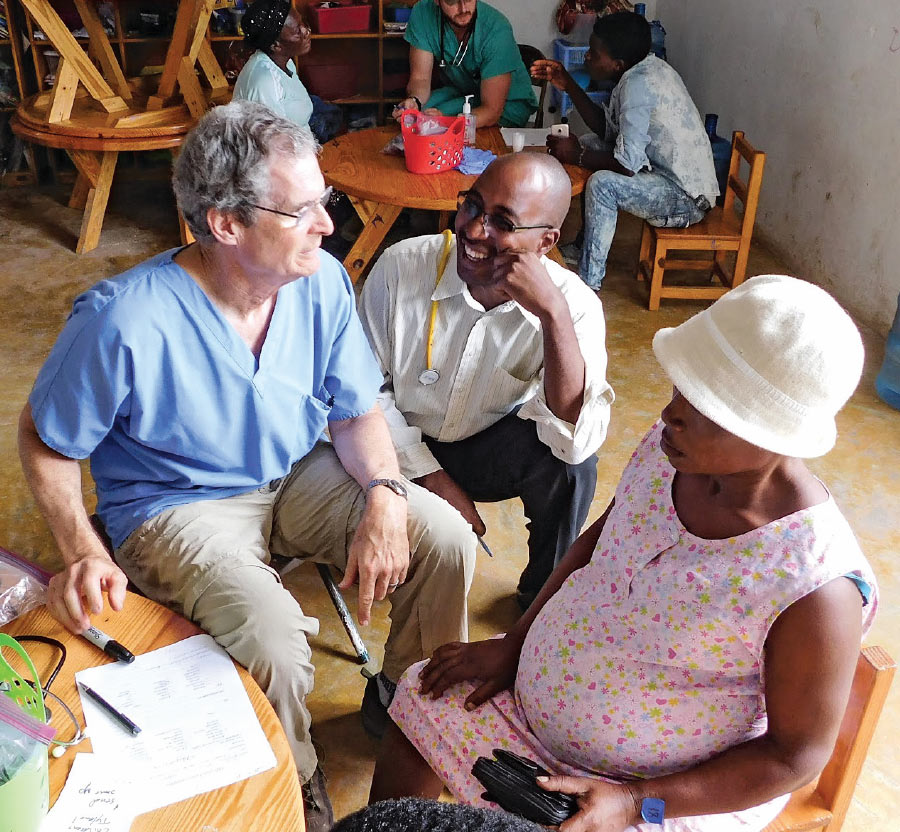
bringing medical aid to haiti
“We wanted a Haitian-centered clinic,” says Heskel, who helps raise money for medication and clinic salaries. Haiti Clinic is staffed entirely by Haitians: two doctors and a dentist, plus nurses and community workers. Patients pay 50 gourdes (about 38 cents) for an office visit. That’s the price Haitian doctors suggested. Culturally, when patients pay a small fee, they value the care they receive. “Haiti has very little to no access to health care,” says Browngoehl. “We provide that in a culturally sensitive way. We ask them what they need, then we provide it.” He admits it’s tough.
There’s little clean water, no sewage system, and no electricity. Increasing hurricanes makes things worse. “Our staff walks to the clinic in rubber boots up to their knees, because most of the time the water is at least ankle-depth,” he says. Gang violence also plagues the area. When the clinic was founded, clinic doctors met with local gang leaders to obtain permission to open. In turn, the gangs protected the clinic. Now newer, more violent gangs don’t respect those relationships. Heskel and Browngoehl stopped traveling to Haiti in 2020. “We’d be an extreme kidnapping risk,” says Browngoehl. “The Haitian doctors told us not to come anymore.”
Besides treating illnesses and injuries, the Haiti Clinic screens every child for malnutrition. Malnutrition weakens the immune system, and diarrhea is a major cause of death. Malnourished children are supplied with Medika Mamba, a peanut-based product that provides complete nutrition.
Back in their Swarthmore days, Heskel majored in philosophy and Browngoehl in biology. Heskel got involved in Upward Bound at Swarthmore and continued his social involvement in medical school and beyond. Browngoehl volunteers with National Health Service Corps and Community Volunteers in Medicine in the U.S. “In my pediatric practice, I always worked with the poor,” he says. “I wanted to do something for other people and the world, and Swarthmore nurtured that.” Equality is the most pressing human rights issue, says Heskel. “Economic inequality carried into political inequality. If that’s not the biggest problem we have, it’s in the top three.”
“The connection of the degradation of the physical environment, climate change, and food insecurity,” adds Browngoehl. “They all come to the forefront in Haiti.” Fundraising for the Haiti Clinic includes non-running 5K races and “don’t bother gettin’ dressed up, just donate” in place of traditional fundraising dinners. “It works!” says Browngoehl. “We’re still supported by the community, and Swarthmore I consider to be my community.” —HEATHER RIGNEY SHUMAKER ’91
Saving People’s Lives When No One Else Can
After working with theater troupes and on cruise ships, she knocked on MSF’s door again. That time it worked.
“It’s difficult to feel so impotent in the face of such a huge change in context,” she says. Humanitarian organizations like MSF are a Band-Aid, says Comer.
They don’t cure the underlying illness, and they don’t create change. Still, they save people’s lives when no one else can. —TOMAS WEBER
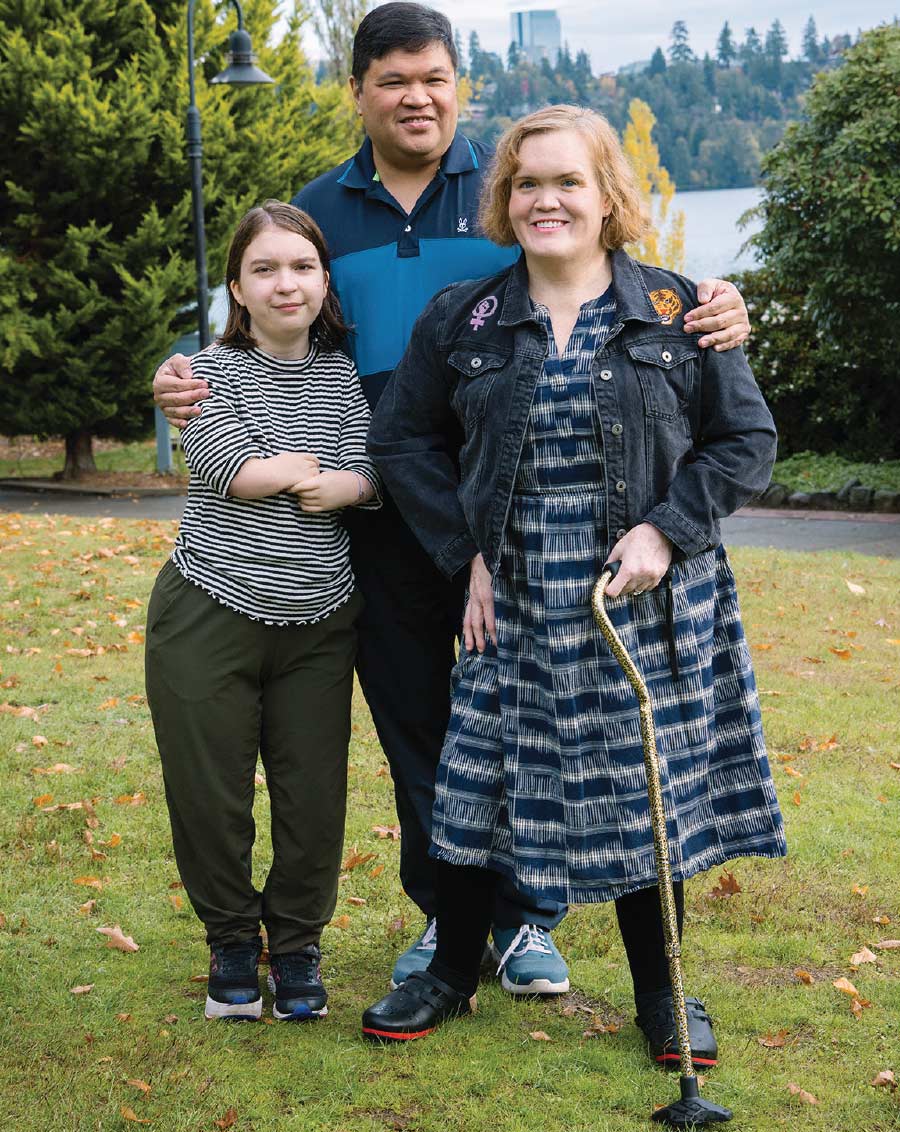
Finding a New Path for Disability Rights
In 2013, though, everything changed.
She adopted a little girl, who shares a similar disability with Basas, from an orphanage in Ukraine. Living in Seattle, Basas could see her child, an English learner with disabilities, was facing barriers. So she stepped up to pull them down. She was appointed director of the Washington State Governor’s Office of the Education Ombuds, where she advocated for the rights of disabled students, and helped the service achieve greater representation of the marginalized communities it served. After a leadership role at Disability Law Colorado, Basas today is the executive director of Disability Rights Washington, where she heads up the state’s civil rights protection and advocacy system for people with disabilities. “It’s all been really exciting,” Basas says. “I didn’t know what I want to do when I grew up, but seeing the experiences of others in my community have taken me on this pathway.” —TOMAS WEBER
Praying for Peace
After Swarthmore, she took a research position at the Philadelphia-based, Quaker-founded American Friends Service Committee. Later she researched U.S. corporations’ support of the U.S. military and then investigated the Reagan Administration’s 1980s arms buildup. Today the Oberlin resident works with a local Quaker group that lobbies Ohio’s Congressional delegation on “peace building.” “To me, the most pressing human rights issue is war,” says Roose, who also served as an assistant dean at Oberlin College and as assistant to its president.
“War preparations and the spending on war and defense are astronomical now,” says Roose. Of grave concern to her is the threat of nuclear war. “The fact that we have so many nuclear weapons I think makes it likelier that they’ll be used someday, even though other countries have them, too. Everyone says they’re for self-defense, but we could easily get into a nuclear war,” she says.
A 1980 trip to Hiroshima and Nagasaki drove home the value of her pacifist efforts. As one of three American journalists who received a grant to interview survivors, she met with many who had never told their grueling accounts.
Her book, Teach Us to Live: Stories from Hiroshima and Nagasaki, spread the word, as did her collaboration on the play “Ghosts of Hiroshima,” which toured Ohio in the 1980s. Quakers, according to Roose, share one abiding principle — “A part of God is in every person. It’s a crime to kill or disrespect that of God in a person. That’s the basic foundational concept Quakers have always used to oppose war.” —GEORGE SPENCER
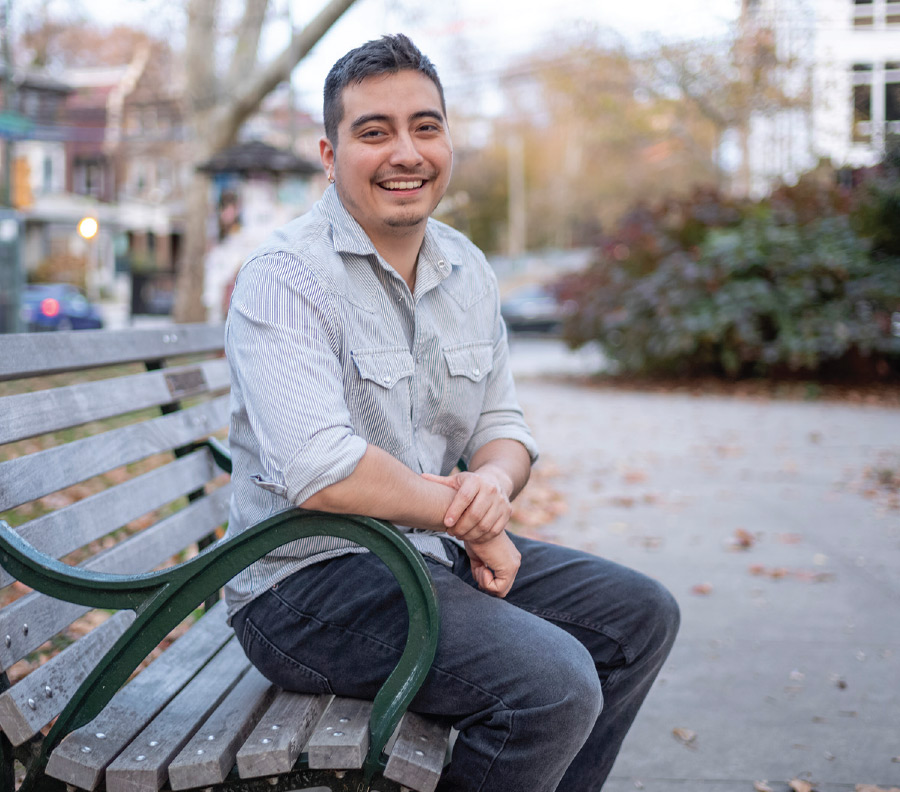
Working to Prevent Gender-Based Violence
As he transitioned into a criminal defense paralegal position, his knowledge of social justice helped him advocate for criminal justice reform.
The work challenged “the bloated reality of mass incarceration in this country,” he says. He would later transition to another paralegal position that advocated for disability rights.
Now Palomo works at Saltz Mongeluzzi Bendesky, a law firm in Philadelphia, as a sex abuse paralegal, where he helps survivors fight for accountability through trauma-informed legal advocacy. Along with preparing court filings and compiling case documents, he also helps his clients navigate and process their trauma.
“I help them let their feelings out,” he says. “The job brings home the ways gender-based violence is tragically ever-present — from mass atrocities to the living room. It starts micro, something we experience at home, but it impacts human-rights issues at every level,” he says. “It’s very pervasive.” —TOMAS WEBER
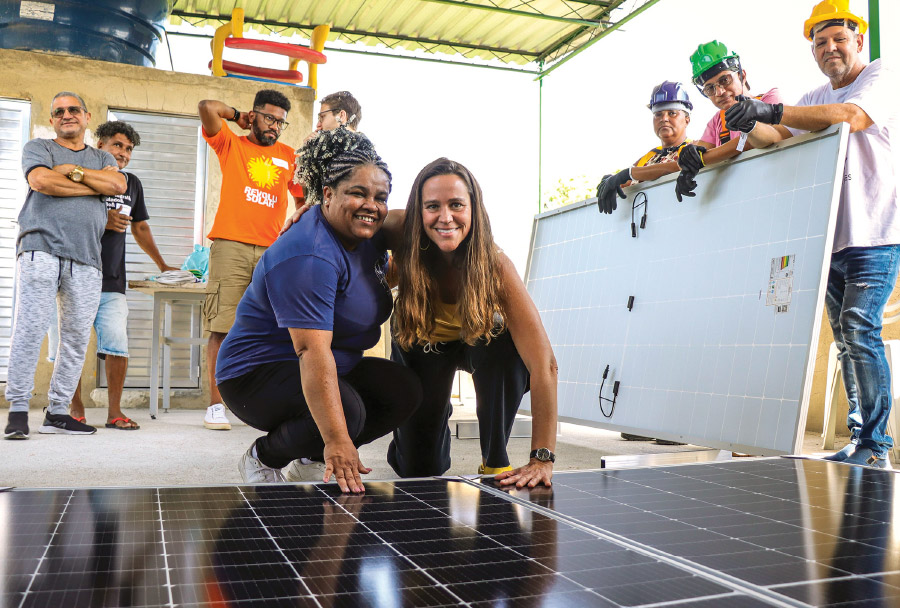
Connecting Communities
“I was in the middle of a forest that was being preserved because it was private,” says Williamson. “But the whole country was in flames because people didn’t have food.”
In 2000, while working on her Ph.D. in urban planning at the University of Pennsylvania, she moved back to Brazil, where she had lived as a child. She wanted to support community organizers in the favelas, informal communities that have long suffered from government neglect, environmental racism, crime, and police violence. That year, she founded an organization called Catalytic Communities, working in tandem with local grassroots organizers.
In 2018, Catalytic Communities introduced the Community Land Trust model to the favelas. Residents will own their own homes, but the land will be held in common. It’s a sustainable model, Williamson says, to ensure that people can access affordable housing in perpetuity.
From the favelas, Williamson has learned that many human rights issues come down to the right to roots.
“If people have a sense of rootedness and belonging, then a lot of other rights flow from that” she says. “If we have community, we can care for each other.” —TOMAS WEBER